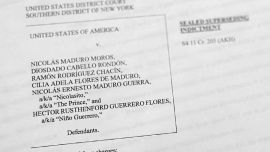What better way to wish readers a Merry Christmas or Happy Hanukkah or whatever than today’s subject of Argentina’s World Cup triumph (held back until the conclusion of its Qatar campaign with the best ending possible)?
Not that this scribe can take any personal credit with his November 19 column on the eve of the tournament forecasting that Argentina would win last Saturday’s match for its first-ever third place and a complete medal table with Brazil lifting the trophy the next day (unless this served to jinx the latter). My only forecasts holding true were the no-brainers of a pointless Qatar continuing this century’s shutout of host countries (including Brazil and Germany) and neither Argentina nor an injury-stricken France repeating their first-round elimination of the only other Asian World Cup in 2002.
The controversial Qatar tournament has been gifted the ending craved by the world press permitting headlines like “Messi’s crowning glory” (The Guardian) or “Messi imortal” (O Globo), making for much easier journalism than trying to give epic dimensions to some patient plodder like Denmark or Belgium outlasting the others.
Yet this column will not be all about Lionel Messi – and not just because so many others have written, are writing and will write about him. No praise is too high for him in the last month especially – whereas he had never scored before in the decisive stages (all six of his previous World Cup goals coming in the first round), Messi has just become the first player ever to score in all four from the second round through to the final. Nevertheless, the personality cult bandwagon should be resisted – among the factors swinging last Sunday’s cliff-hanger Argentina’s way was the fact that while Kylian Mbappé was at least 80 percent of his team’s effort, Messi was not.
This columnist would actually be more inclined to name Angel Di María as the key player – coach Lionel Scaloni’s brilliant decision to deploy him instead of lining up a five-man defence with the addition of the reliable Lisandro Martínez wrong-footed France from the start. While Dí María was on the pitch exploiting the empty spaces, it was a walkover with the suspense kicking in after his replacement. Nor can the contribution of goalie Emiliano ‘Dibu’ Martínez possibly be overestimated (and not just in the penalty shootouts). But over and above singling out any of these three Ms, this trophy is a triumph of teamwork, not a one-man show.
Was it the greatest World Cup final ever, as widely declaimed by the world press? Perhaps but there is nothing new about Argentina losing a 2-0 lead either in this tournament or in its World Cup history (the story of half its six world finals). It was 2-0 against Australia before a late freak goal caused jitters, 2-0 against the Netherlands reverted by that 100th minute equaliser and if 2-0 against Croatia eventually culminated in a third goal, 2-0 last Sunday was obliterated by one minute of Mbappé. At the very first World Cup final in Montevideo in 1930, Argentina was leading Uruguay 2-1 at half-time; in 1986 a 2-0 lead over West Germany disappeared in eight minutes, courtesy of Karl-Heinz Rummenigge and Rudi Völler, and then even faster last Sunday. In the 1954 Miracle of Berne Hungary was 2-0 up within eight minutes against eventual winners West Germany while the previous final, the dramatic Maracanazo in which tiny Uruguay beat Brazil in Brazil in 1950, would remain hard to beat as an epic.
Nevertheless, none of the above finals had as many swings of fortune while the only two previous penalty shoot-outs (1994 and 2006) were to put two sterile contests out of their misery – hence this possibly was the greatest ever. But it might not have been if the semi-finals had been more competitive – Argentina against Brazil, say, and France versus Spain might have led to one of the tired finals prevailing since the last time Argentina lifted the Cup in 1986 (with no team scoring more than once in five of those eight matches).
Amid all the meticulous press coverage of all possible details and trivia of this epic final, I have yet to see one historic breakthrough mentioned – for the first time ever Argentina figures in the podium of the World Cup all-time table. For as long as I can remember – not always, of course, because Uruguay and Italy monopolised the first four World Cups – but for perhaps half a century that table was headed by Brazil, Germany and Italy. If the latter had qualified for the last two World Cups, even performing as mediocrely as Germany in those tournaments, they would still be there but Argentina has now squeezed two points (158) ahead into third place, albeit with one less championship.
Not much space left to shift from the national to the global. It was a pretty democratic tournament (27 of the 32 participants won at least one match with only Qatar and Canada pointless) but the first-round surprises – not least Saudi Arabia beating the champs – tended to fizzle out in the later stages with two former winners in the final at the end of the day. The first-ever African semi-finalist (Morocco) is worth highlighting. Let us see what the next 48-nation World Cup in 2026 does to globalise a tournament for which almost two-thirds of FIFA’s 211 members have yet to qualify.
All sorts of comparisons between 1986 and this year are being pointed out – Argentina playing a previous finalist eight years after having been a finalist herself, both referees sharing the same January 7 birthday, etc. To which I might add one of my own – 1986 was the first World Cup of my journalistic career (and the first won away from home) and now this, the first won outside the Americas.
Finally, a Happy 2023 to all readers (no column next Saturday).




















Comments